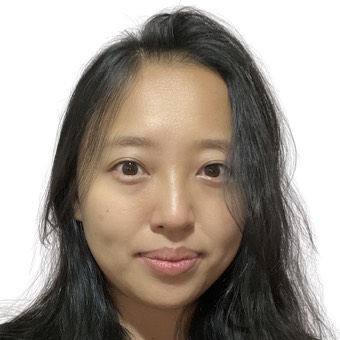Alum Profile: Pyunghwa Lee, English
 February 13, 2023
February 13, 2023
Anna Valcour | Graduate School of Arts and Sciences
Pyunghwa Lee, English PhD ’22, received a Higher Education Administrative Internship to work with the Journalism Program in her final year as a graduate student. Pyunghwa researched and applied for grants to support the program’s expansion, helped its anti-racism efforts, facilitated wider alumni engagement, and aided faculty as they worked to attract more first-generation and low-income students. Pyunghwa is currently the department administrator for the Ethics Center.
How did you hear about the Connected PhD internship? Why did you choose to apply?
I had been aware of the Connected PhD program for a while, but I hadn’t applied for any internships or experience grants at that point. I was entering the final year of my PhD program, and I had the desire to do some meaningful work while I was still at the university. I was intrigued by the goals of the Journalism program for this project, and after I interviewed, I knew I wanted to be a part of it, so I felt very lucky when I found out I had gotten the internship.
How did the project enhance your skills or demonstrate your abilities beyond academia?
The internship required engaging in a lot of communication within our program and outside of the program, with other departments and with students. I think this was one of the main areas where I grew my skills. I think one thing I realized during the internship was how the things I was learning to do would help me as a researcher and teacher, which was the role I was most used to, but also how the skills I had already developed as a researcher and teacher were in fact very valuable for the kinds of work I needed to do in this internship. For instance, when I co-led a project where we worked with undergraduates to find new sources to be included in a future Journalism class, I drew on my teaching experience and my experience as a scholar. Conversely, as I am now getting ready to teach several classes this fall (2022), I find that I am able to think outside of the box a bit more in terms of the kinds of activities I will have my students do throughout the semester, and I believe this more creative, experimental approach is partly attributable to the kind of work I was asked to do in the Journalism program.
Have you had the opportunity to lead projects on your own?
I was able to co-lead a pilot project with another staff member, and this was a great experience. The director of the program basically put us in charge of doing this project, and it entailed working in the fall with a group of undergraduates to get their feedback and input on a course that was going to be offered in the spring and hear from them about how to make the class more diverse and inclusive. We ran this project again in the spring for another class. It definitely felt great to be in charge of something and feel like the director of the program has confidence in you. It also required a lot of responsibility to communicate with the staff member I was working with and with the students that were part of the project. So overall, it was a very important experience that I will draw on in the future quite a bit, I think.
In what ways did this internship influence your future goals of professional development and career plans?
It definitely opened my eyes to what higher ed administrative work is like and made me see how the collaborative nature of that kind of work can feel very rewarding and meaningful. It showed me that a traditional teaching job doesn’t have to be the only career path open to me with the degree I have. When I was applying for jobs after finishing my dissertation, I certainly applied for a much wider variety of jobs than I would have before getting this experience, and I was recently hired by the International Center for Ethics, Justice, and Public Life at Brandeis as a department administrator.
What was your favorite part of this experience?
I would say that my favorite part of the experience was forging relationships with people in the Journalism program. I worked very closely with several people in the program, and it really felt like we were building something together. The Journalism program is smaller than my home program in English, so it was very intimate, but it’s also a growing program that is starting to attract a lot of undergraduates. It felt like there was a lot of room for experimentation and trying things out. I think there are certainly pros to working in a very established program where you know exactly what you are supposed to be doing, but it also feels great to take part in building something and to be given the freedom to really play an important role in that building.
What advice do you have for current students who might be interested in a Higher Ed Administrative Internship?
My main advice would be to stay open-minded, both in the kinds of positions you apply for and in the kind of work you do if you get an internship. Try not to restrict yourself in the kinds of tasks you do, but rather feel confident in taking on challenges and recognize that a lot of the skills we develop in our academic studies are transferable to the kind of work we do in these positions, even if that may not seem obvious at first.






